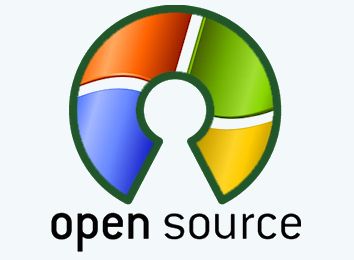Microsoft has opened the kimono a bit more on its ASP.NET technologyin releasing the source code for ASP.NET Web API and ASP.NET Web Pages, also known as Razor.
In the past, Microsoft made the source code for ASP.NET MVC available under an open-source licence. Now, the company has open-sourced another hearty chunk of its ASP.NET technology to the delight of some open-source players.
Accepting contributions
“The most interesting part is they will be taking contributions from the community for the first time for a product Microsoft distributes from its core offerings,” said Miguel de Icaza, founder of the Xamarin and Ximian companies and the Mono and Gnome open-source projects.
 De Icaza, CTO of Xamarin, said for the first time in its history, Microsoft is allowing developers outside the company to submit patches/code for potential inclusion in products, and Xamarin will be the first contributors to this effort. Large chunks of code that the Mono project previously said it could never complete – due to size – will now be available. The newly released Microsoft source code will be incorporated into Xamarin’s products and the open-source Mono runtime. Xamarin also plans to integrate the Razor Engine and Entity Frameworks into its mobile products.
De Icaza, CTO of Xamarin, said for the first time in its history, Microsoft is allowing developers outside the company to submit patches/code for potential inclusion in products, and Xamarin will be the first contributors to this effort. Large chunks of code that the Mono project previously said it could never complete – due to size – will now be available. The newly released Microsoft source code will be incorporated into Xamarin’s products and the open-source Mono runtime. Xamarin also plans to integrate the Razor Engine and Entity Frameworks into its mobile products.
Moreover, de Icaza said he believes that Microsoft has reached the final stage in embracing open source – not only by opening up the code, but also by taking contributions.
In a blog post on the open sourcing, Scott Guthrie, a corporate vice president in the Microsoft Server and Tools Business division, said, “Microsoft has made the source code of ASP.NET MVC available under an open-source licence since the first V1 release. We’ve also integrated a number of great open-source technologies into the product, and now ship jQuery, jQuery UI, jQuery Mobile, jQuery Validation, Modernizr.js, NuGet, Knockout.js and JSON.NET as part of it.”
Guthrie added: “I’m very excited to announce today that we will also release the source code for ASP.NET Web API and ASP.NET Web Pages (aka Razor) under an open-source licence (Apache 2.0), and that we will increase the development transparency of all three projects by hosting their code repositories on CodePlex (using the new Git support announced last week). Doing so will enable a more open development model where everyone in the community will be able to engage and provide feedback on code check-ins, bug-fixes, new feature development, and build and test the products on a daily basis using the most up-to-date version of the source code and tests.
“We will also, for the first time, allow developers outside of Microsoft to submit patches and code contributions that the Microsoft development team will review for potential inclusion in the products,” he continued. “We announced a similar open development approach with the Windows Azure SDK last December, and have found it to be a great way to build an even tighter feedback loop with developers – and ultimately deliver even better products as a result.”
Still supported
To de Icaza’s point, Guthrie specifically noted that ASP.NET MVC, Web API and Razor will continue to be fully supported Microsoft products that ship both standalone as well as part of Visual Studio, and they will also continue to be staffed by the same Microsoft developers that build them today.
“Our goal with today’s announcement is to increase the feedback loop on the products even more, and allow us to deliver even better products,” Guthrie said. “We are really excited about the improvements this will bring.”
However, Guthrie also noted that all code submissions will be rigorously reviewed and tested by the ASP.NET MVC Team and only those that meet an extremely high bar for both quality and design/road map appropriateness will be merged into the source.
“This is unexpected because this is not just a project Microsoft has thrown over the fence and is not doing anything with anymore; it’s a product they are actively producing,” de Icaza said. “And they are adopting practices from the open-source and Linux communities. So they are starting to become an open-source company, at least in the Web-development area.”
“The tighter feedback loop is going to enable us to build even better products, and take ASP.NET to the next level in terms of innovation and customer focus,” Guthrie said.




